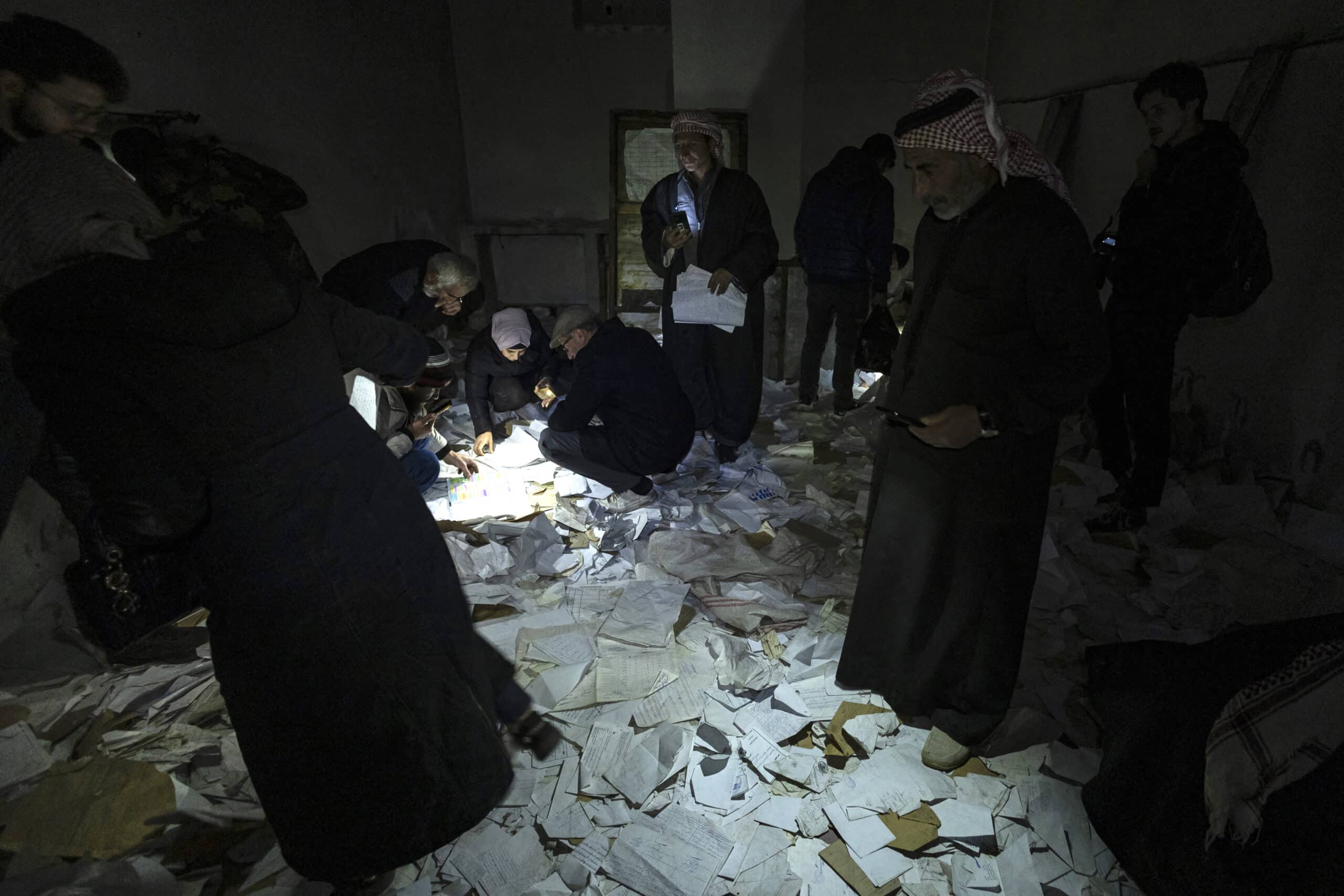Just over $110 million in Syrian assets frozen in Switzerland

People look through documents at the Saydnaya prison in Damascus on December 11, 2024. – After Assad’s overthrow, thousands flocked to Saydnaya prison hoping to find loved ones who disappeared in government jails. Saydnaya is believed to have several underground levels sealed behind airtight gates. (Photo by Sameer Al-DOUMY / AFP)
Zurich, Switzerland — Switzerland is home to around 99 million Swiss francs ($112 million) in frozen Syrian assets, Bern’s economy ministry told AFP Wednesday, denying any of it belonged to fallen president Bashar al-Assad.
Those funds were frozen under sanctions Switzerland adopted in 2011 in alignment with the European Union, targeting Syria’s ex-strongman and his associates for his government’s widespread human rights abuses, the ministry said.
But none of them belonged to Assad directly, it added, confirming newspaper Neue Zuercher Zeitung’s reports that relatively few Syrian assets were held in Switzerland’s famously secretive banking system.
READ: New Syria PM says will ‘guarantee’ all religious groups’ rights
When dictators fall — as Assad did following a rebel alliance’s capture of Damascus on Sunday — “Switzerland and its financial centre automatically come to the fore,” the Swiss daily said.
Article continues after this advertisementBut “a hunt for Assad’s millions” does not seem to be in the offing for Swiss banks, as “financial relations between Switzerland and Syria have been virtually frozen since 2011”, the Zurich-based newspaper added.
Article continues after this advertisementThe Neue Zuercher Zeitung also pointed out that Switzerland’s banking industry largely withdrew from once-profitable Syria in the early 2000s.
At present, 318 people and 87 entities are on Switzerland’s sanctions list related to Syria and Assad, whose toppling brought an end to more than five decades of his family’s dynastic rule.
With its banks’ much-touted policy of secrecy, Switzerland has long been a haven for governments and individuals wishing to avoid international scrutiny of their gains.
Most infamously its banking vaults held millions in gold bullion shipped by Nazi Germany to the small alpine nation during World War II, as well as assets plundered from nations the Nazis conquered in the conflict and Jewish victims of the Holocaust.